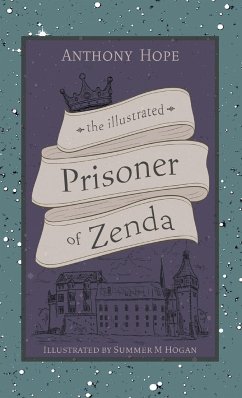When evil threatens the kingdom from within, help must rise from outside. On the eve of his coronation, Rudolf of Ruritania has been drugged and kidnapped. Without attending the coronation, his crown is forfeit, and Ruritania will be ruled by his kidnapper, unless . . . unless the king's visiting English cousin takes his place. But for Cousin Rudolf, it takes more than a doppelganger's looks to be a convincing stand-in until the king can be rescued. Will he be discovered? Schemes, swordplay, madmen, and forbidden love obstruct the path of this unlikely hero. First published in 1894, this beloved classic adventure novel has inspired over a dozen stage and screen renditions since 1895. Republished by Smidgen Press with custom illustrations, readers young and old can delight in this beautiful novel.








